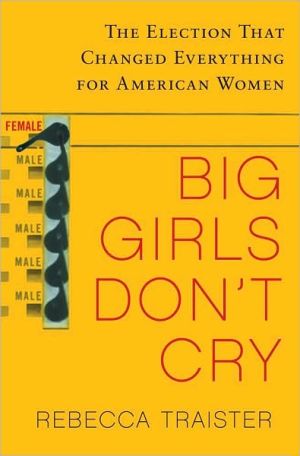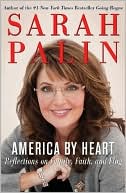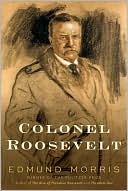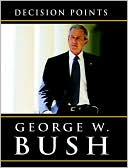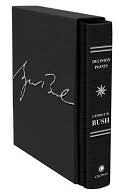Big Girls Don't Cry: The Election that Changed Everything for American Women
"Rebecca Traister's lively, insightful narrative discloses an underreported layer of the 2008 presidential campaign–and in so doing makes the subject fresh and vital again. An important and disquieting book, but also a pleasure to read."—Robert Draper, Author Of Dead Certain" "Traister is a clear-eyed, whip-smart observer of the political scene, alert to the resurgence of identity politics as well as the recrudescence of feminism that marked the most recent presidential campaign. She has...
Search in google:
"Rebecca Traister's lively, insightful narrative discloses an underreported layer of the 2008 presidential campaign–and in so doing makes the subject fresh and vital again. An important and disquieting book, but also a pleasure to read."—Robert Draper, Author Of Dead Certain" "Traister is a clear-eyed, whip-smart observer of the political scene, alert to the resurgence of identity politics as well as the recrudescence of feminism that marked the most recent presidential campaign. She has fashioned a remarkably engrossing page-turner of a cultural narrative, one which features outsize characters and unpredictable plot twists. Big Girls Don't Cry is a report on the 2008 election, but more important, it is a report on the way we think now. If you want to understand where we are going as an electoral entity–why Sarah Palin is the folk heroine du jour and why Michelle Obama has domesticated her freethinking persona–read this book."—Daphne Merkin, Novelist And Critic" "The startling intelligence and graceful prose of Rebecca Traister's coverage of American cultural politics has been one of journalism's best kept secrets during the past decade. With Big Girls Don't Cry she claims her place as heir to the tradition of Mary McCarthy and Joan Didion as she excavates the tectonic changes that lurked below the surface of most election reporting and illuminates events in a manner that will surprise political junkies and casual observers alike."-Eric Alterman, Author of Why We're Liberals" "Rebecca Traister is the most brilliant voice on feminism in this country. I was totally caught up in Big Girls Don't Cry from the first page and couldn't believe how much Ms. Traister captured and illuminated a story which I had though was so well versed: the 2008 election. She told it as if for the first time."-Anne Lamott, Author of Bird by Bird" "Rebecca Traister, whose coverage of the 2008 presidential election for Salon confirmed her to be a gifted cultural observer, offers a startling appraisal of what the campaign meant for all of us. Though the election didn't give us our first woman president or vice president, the exhilarating campaign was nonetheless transformative for American women and for the nation. In Big Girls Don't Cry, her electrifying, incisive and highly entertaining first book, Traister tells a terrific story and makes sense of a moment in American history that changed the country's narrative in ways that no one anticipated." "It was all as unpredictable as it was riveting: Hillary Clinton's improbable rise, her fall and her insistence (to the consternation of her party and the media) on pushing forward straight through to her remarkable phoenix flight from the race; Sarah Palin's attempt not only to fill the void left by Clinton, but to alter the very definition of feminism and claim some version of it for conservatives; liberal rapture over Barack Obama and the historic election of our first African-American president; the media microscope trained on Michelle Obama, harsher even than the one Hillary had endured fifteen years earlier. Meanwhile, media women like Katie Couric and Rachel Maddow altered the course of the election, and comedians like Tina Fey and Amy Poehler helped make feminism funny." "What did all this mean to the millions of people who were glued to their TV sets, and for the country, its history and its future?" "As Traister sees it, the 2008 election was good for women. The campaign for the presidency reopened some of the most fraught American conversations–about gender, race and generational difference, about sexism on the left and feminism on the right–difficult discussions that had been left unfinished but that are crucial to further perfecting our union." "The election was also catalytic, shaping the perspectives of American women and men from different generations and backgrounds, altering the way that all of us will approach questions of women and power far into the future. When Clinton cried, when Palin reached for her newborn at the end of a vice presidential debate, when Couric asked a series of campaign-ending questions, the whole country was watching women's history–American history–being made." "Throughout, Traister weaves in her own experience as a thirty something feminist sorting through all the events and media coverage–vacillating between Clinton and Obama and forced to face tough questions about her own feminism, the women's movement, race and the different generational perspectives of women working toward political parity some ninety years after their sex was first enfranchised." It was a time of enormous change, and there is no better guide through that explosive, infuriating, heartbreaking and sometimes hilarious year than Rebecca Traister. Big Girls Don't Cry offers an enduring portrait of dramatic cultural and political shifts brought about by this most historic of American contests. The New York Times - Liesl Schillinger …a passionate, visionary and very personal account of the cultural ferment that accompanied the election of '08…[Traister] adroitly juggles a galaxy of new- and old-media sources. She draws her inferences from interviews, newspapers, magazines, news programs, "Saturday Night Live" and Comedy Central political shows…as well as from Current TV clips and stroppy Web sites…
Introduction 11 Hillary Is Us 112 Spousal Supports 353 Campaigning While Female 634 Five Days in January 855 The Most Restricting Forces 1076 All About Their Mothers 1377 Boys on the Bus 1658 Things to Do in Denver If You're Female 1999 Enter Palin 22110 Pop Culture Warriors 23911 The Next Wave Is Here 26912 The Aftermath 285Acknowledgments 301Note on the Author's Use of Her Previously Published Work 303Selected Bibliography 305Index 317
\ Publishers WeeklyWho would have figured that the women who would benefit most from the 2008 presidential campaign would be the comediennes? Sarah Palin and Hillary Clinton may have lost in their respective campaigns, but Amy Poehler and Tina Fey both gained in cultural stature for their biting imitations. According to Traister, staff writer at Salon.com, the rollercoaster ride of 2008 exposed an entrenched chauvinism in the media and a lesson for anyone who might assume that a female candidate would hold a monopoly on women's votes. The author bludgeons conventional political wisdom by trenchantly exposing Palin's strange triangulation of mainstream feminism, Clinton's need to appear vulnerable in order to appeal to women, and the precarious position of black women--some of whom were conflicted between supporting candidates who mirrored their gender or their race. Rising to the occasion, however, were women in the media, from Katie Couric, who--depending on your perspective--ruined or sainted Sarah Palin, to the sofa-bound political discourse of The View. Traister does a fine job in showing that progress does not proceed in straight lines, and, sometimes, it's the unlikeliest of individuals who initiate real change. (Sept.)\ \ \ \ \ New York Times Book Review"A passionate, visionary and very personal account.”\ \ \ NPR's Fresh AirSuperb.... Big Girls Don’t Cry is much more than an assemblage of these type of ‘boys on the bus’ campaign anecdotes. As anyone who’s followed Traister’s sharp and lively essays in Salon knows, her particular ‘beat’ is gender. What she does here is tease out the cultural narratives that came to wield so much power during the [2008 presidential] campaign and, finally, in the voting booth.... There’s so much…to be learned and argued over in Big Girls Don’t Cry…. Girls, these days, can not only run for president; they can also brilliantly analyze presidential campaigns, too.\ — Maureen Corrigan\ \ \ \ \ The Washington PostI ended up admiring Traister and loving her book. In its best parts, it is a raw and brave memoir of a journalist who discovered that all is not well for women in America, and a description of how she and other young women are laying claim to their rightful place in the fight. . . . Such a youthful embrace of the women’s work yet to be done is exhilarating—for her generation and for mine.\ — Connie Schultz\ \ \ \ \ Slate.com“Traister's book masterfully reminds us that we have just lived through a historic moment when a woman, no matter how flawed she was, ‘came within spitting distance,’ of a nomination for president.”\ \ \ \ \ NPR’s Fresh Air“Superb.... Big Girls Don’t Cry is much more than an assemblage of these type of ‘boys on the bus’ campaign anecdotes. As anyone who’s followed Traister’s sharp and lively essays in Salon knows, her particular ‘beat’ is gender. What she does here is tease out the cultural narratives that came to wield so much power during the [2008 presidential] campaign and, finally, in the voting booth.... There’s so much…to be learned and argued over in Big Girls Don’t Cry…. Girls, these days, can not only run for president; they can also brilliantly analyze presidential campaigns, too.”\ \ \ \ \ The Washington Post“I ended up admiring Traister and loving her book. In its best parts, it is a raw and brave memoir of a journalist who discovered that all is not well for women in America, and a description of how she and other young women are laying claim to their rightful place in the fight. . . . Such a youthful embrace of the women’s work yet to be done is exhilarating—for her generation and for mine.”\ \ \ \ \ Anne Lamott“Rebecca Traister is the most brilliant voice on feminism in this country. I was totally caught up in Big Girls Don’t Cry from the first page, and couldn't believe how much Ms. Traister captured and illuminated a story with which I had thought I was so well versed: the 2008 election. She told it as if for the first time.”\ \ \ \ \ Daphne Merkin“Traister is a clear-eyed, whip-smart observer of the political scene, alert to the resurgence of identity politics as well as the recrudescence of feminism that marked the most recent presidential campaign. She has fashioned a remarkably engrossing page-turner of a cultural narrative, one which features outsize characters and unpredictable plot twists. Big Girls Don't Cry is a report on the 2008 election but more importantly it is a report on the way we think now. If you want to understand where we are going as an electoral entity—why Sarah Palin is the folk heroine du jour and why Michelle Obama has domesticated her free-thinking persona—read this book.”\ \ \ \ \ Eric Alterman“The startling intelligence and graceful prose of Rebecca Traister’s coverage of American cultural politics has been one of journalism’s best kept secrets during the past decade. With Big Girls Don’t Cry, she claims her place as heir to the tradition of Mary McCarthy and Joan Didion as she excavates the tectonic changes that lurked below the surface of most election reporting and illuminates events in a manner that will surprise political junkies and casual observers alike.”\ \ \ \ \ Katha Pollitt“In this riveting account of the 2008 election, Rebecca Traister negotiates the shoals of race and gender with exceptional grace and skill and establishes herself as one of the major younger journalists working today.”\ \ \ \ \ Robert Draper“Rebecca Traister’s lively, insightful narrative discloses an under-reported layer of the 2008 presidential campaign—and in so doing makes the subject fresh and vital again. An important and disquieting book, but also a pleasure to read.”\ \ \ \ \ Curtis Sittenfeld“I didn't know what I didn't know about the 2008 election until reading Rebecca Traister’s smart, entertaining take on it. Well-researched, well-written, provocative, and insightful, BGDC is a high-spirited salute to feminism in its many forms.”\ \ \ \ \ Library JournalHillary Clinton concluded that her success in the 2008 primaries meant that children could grow up taking for granted that a woman can be U.S. President. When Sarah Palin then accepted her party's nomination for vice president, it revived the idea of a woman as President. Traister (Salon.com) here reflects on women's impact on the political process in 2008, the candidates, the media's sometimes sexist attention to Clinton and Palin, and voters' reactions to the candidates and campaigns. She looks at the complicated roles some candidates' spouses played and the media's challenge covering the possibility that we'd have an African American or a female President. Traister names several male correspondents who, in her view, displayed a significant level of sexist reporting and praises sound, professional coverage by numerous female correspondents. She quotes extensively from online media to support her views, thus providing broader perspective. VERDICT This will appeal to readers interested in the 2008 elections, women in politics, or media coverage of politics.—Jill Ortner, SUNY at Buffalo Libs.\ \ \ \ \ Liesl Schillinger…a passionate, visionary and very personal account of the cultural ferment that accompanied the election of '08…[Traister] adroitly juggles a galaxy of new- and old-media sources. She draws her inferences from interviews, newspapers, magazines, news programs, "Saturday Night Live" and Comedy Central political shows…as well as from Current TV clips and stroppy Web sites…\ —The New York Times\ \ \ \ \ Connie SchultzI ended up admiring Traister and loving her book. In its best parts, it is a raw and brave memoir of a journalist who discovered that all is not well for women in America, and a description of how she and other young women are laying claim to their rightful place in the fight.\ —The Washington Post\ \ \ \ \ From the Publisher"Traister does a fine job in showing that progress does not proceed in straight lines, and, sometimes, it's the unlikeliest of individuals who initiate real change." —-Publishers Weekly\ \
